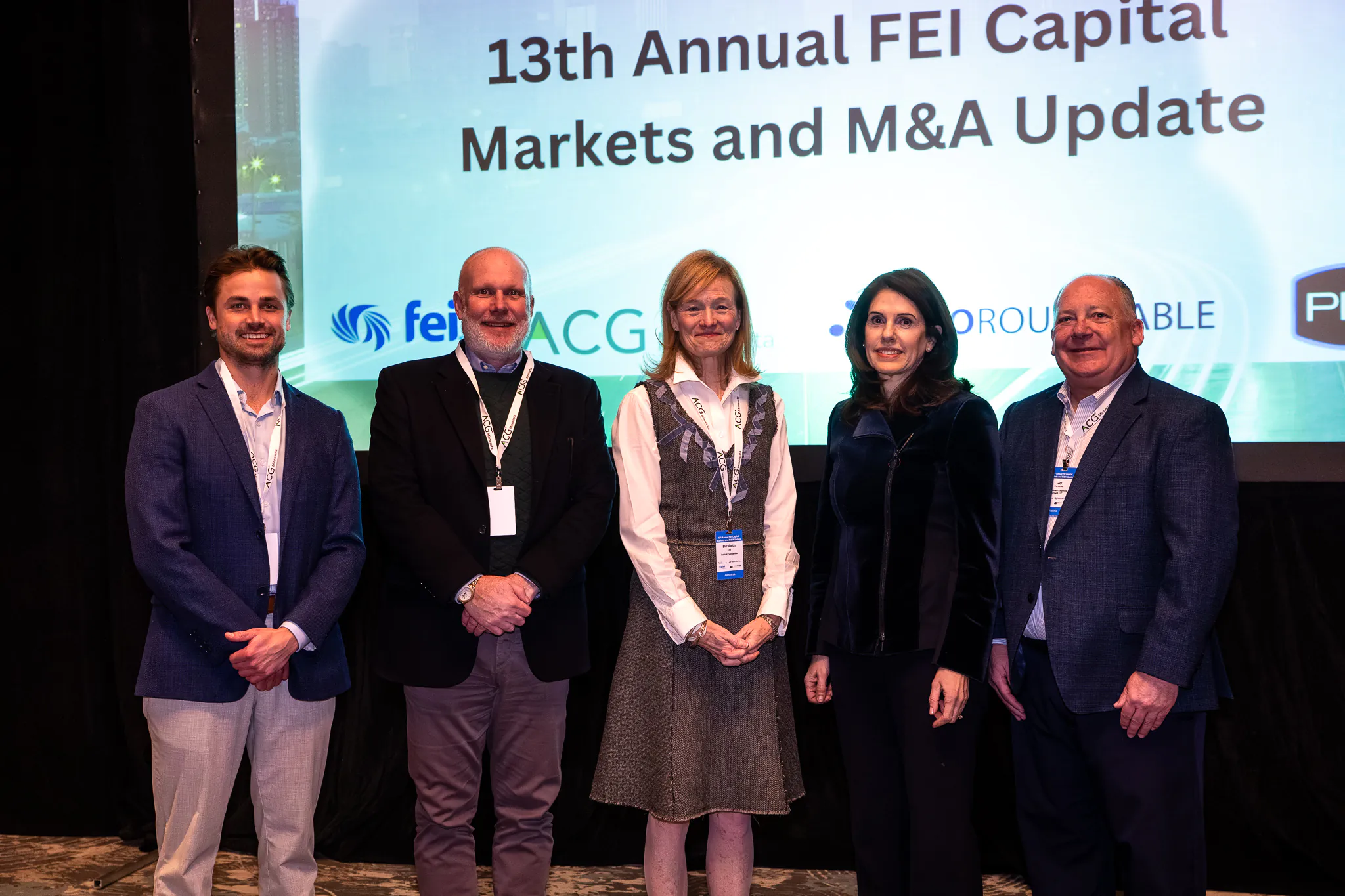More money chasing deals in ‘frothy’ M&A market
Finance & Commerce
by William Morris
The best word to summarize the 2019 market for mergers and acquisitions might be “frothy.”
At a Tuesday conference for M&A experts hosted by Faegre Baker Daniels in Minneapolis, panelists described a market flush with cash but struggling to maintain momentum after a decade of uninterrupted economic growth.
“There’s still a tremendous amount of supply of capital,” said Matt Sznewajs, managing director at Piper Jaffray. “It’s out there, both from the private equity world as well as from the lenders. But there’s not enough supply of companies, though. So the [capital] supply is there as the supply of companies isn’t necessarily there.”
2018 was the fourth straight year with more than $2 trillion in deals in North America, according to market data company PitchBook. Through the third quarter of 2019, the market is on track to extend the streak to five, with $1.6 trillion in deals to date. But despite those topline numbers, there’s a feeling of unease among M&A experts as they look to the next few years, said Bruce Engler, conference emcee and head of Faegre Baker Daniels’ mergers and acquisition practice.
“I sense a level of anxiety in the M&A market that I haven’t felt for a few years, to be thinking about all this stuff that’s going on right now,” Engler said. “Total political dysfunction, trade wars, slowing U.S. economy, very slow global economy, an M&A market that’s very long in the tooth; there’s a lot to dislike today and I think a lot to be concerned about.”
Politics is especially on the mind as brokers look ahead to the next 12 months and the 2020 election. Harris Williams managing director Glenn Gurtcheff said that, while the Trump administration has cut taxes and regulations, “the noise around trade and tariffs is generally viewed as very, very unproductive” and the president’s penchant for policy formulation via Twitter creates unwelcome uncertainty for the market. Nor are companies necessarily rooting for his likely electoral opponents.
“On the other hand, the farther the Democratic pool of candidates leans leftward, the more uncertainly you’re going to bring into the equation there too,” he said. “The market really does not like uncertainty, and views the current political environment right now as just introducing risk.”
That uncertainty, which is likely to grow as the election nears, is leading companies to advance or delay their plans for deals, Sznewajs said.
“A lot of the conversations that we’re having with our clients right now, whether it’s institutional clients or just privately held businesses, is the timing of when you go to market if they’re looking at thinking about a sale,” he said, “because nobody wants to get hung up in the time period around the election next year.”
On the other hand, there are factors that continue to push companies to consolidate. Tech, media and telecommunications companies make up the largest share of M&A activity so far this year, followed by consumer goods, Aethlon Capital managing principal Sima Griffith said.
“As long as companies are on this technology treadmill, where they need to own the latest and greatest technology to compete better, and as long as there is billions of dollars in private equity looking to invest, we will continue to have a frothy M&A market,” she said.
Weighing against that, though, are signs of weakness in the national and global economy, such as a decline in the manufacturing-focused Purchasing Managers Index to its lowest level since 2016. Several speakers said it’s a matter of time until a recession arrives, and anyone looking to buy or sell companies needs to be aware of the broader economy.
Faegre Baker Daniels partner Morgan Burns offered a unique description of the economic environment: “People are maybe in a little bit of a race to a finish line that is moving around on us.
For a full video of the conference, click here. Sima Griffith’s comments can be found at the 43-minute mark.




